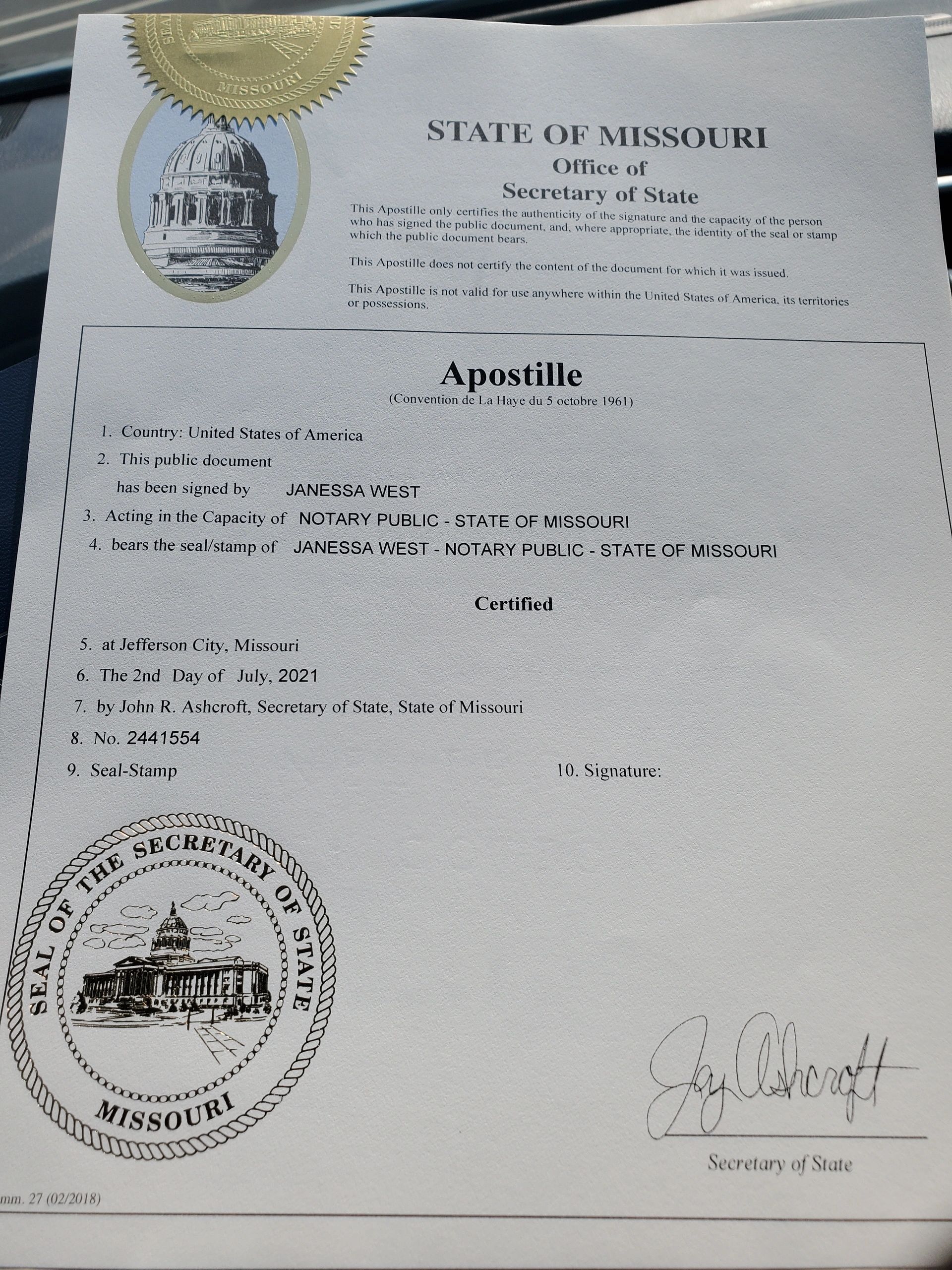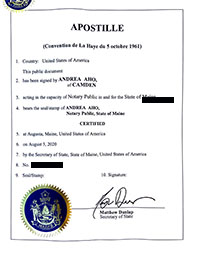Comprehending the Apostille Refine: A Comprehensive Guide to International File Authentication
Navigating the intricate landscape of worldwide paper authentication can be daunting without a clear understanding of the apostille process. What precisely specifies an apostille, and why is it so important for records destined for Hague Convention countries?
What Is an Apostille?
An apostille is an official qualification that validates the credibility of a document for usage in an additional country. This accreditation, released by a marked authority in the country where the file originated, guarantees that the document is recognized as valid and legitimate in the international arena. The procedure of acquiring an apostille entails several steps, including the verification of the paper's trademarks, seals, and stamps by suitable governmental bodies.
The apostille offers as a globally acknowledged form of verification, made possible by the Hague Convention of 1961. This treaty, formally called the Hague Convention Eliminating the Demand of Legalisation for Foreign Public Records, systematizes the procedure of file qualification amongst participant countries. The apostille itself is a standardized certificate that has specific information, such as the issuing authority, the nation of beginning, and the date of issuance.
It is necessary to note that not all documents are qualified for an apostille. Normally, public documents like copyright, marital relationship licenses, court orders, and educational diplomas receive this accreditation. Exclusive files, such as agreements and arrangements, may need registration and extra actions to qualify.
Relevance of Apostille
Comprehending what an apostille is sets the phase for valuing its value in worldwide dealings. houston tx apostille. An apostille, essentially a kind of certification issued by an assigned authority, validates the credibility of a record for use in international countries that are signatures to the Hague Apostille Convention. This standard procedure removes the demand for further legalization by consular offices or consulates, therefore streamlining international transactions
The significance of an apostille can not be overstated. It makes certain the reliability and acceptance of essential papers-- such as birth certifications, marriage licenses, and academic diplomas-- across borders. For businesses, it promotes the smooth conduct of global profession, mergers, and procurements by providing a trusted technique of paper verification. This minimizes bureaucratic hurdles, conserving both time and sources.
Moreover, an apostille improves lawful safety and security and conformity. Federal governments and organizations can with confidence count on the credibility of papers birthing link an apostille, alleviating the danger of fraudulence and misstatement. Therefore, the apostille functions as an important device in promoting international cooperation and trust fund. Its duty in cultivating reliable and protected worldwide purchases highlights its crucial worth in today's interconnected world.
Papers That Require Apostille
When engaging in global deals or lawful issues, details documents commonly demand the authentication given by an apostille. This ensures their acknowledgment and acceptance in countries that are notaries to the Hague Apostille Convention. Typically, personal documents such as birth certifications, marital relationship certifications, and fatality certificates require an apostille, particularly when they are used for processes like immigration, marital relationship abroad, or worldwide probate issues.
Educational files are one more classification regularly requiring apostilles. Diplomas, records, and scholastic records commonly require this verification for functions such as seeking more education, work, or expert licensing in a foreign nation (houston tx apostille). This action guarantees that the papers are identified as legitimate and valid
Lawful records, including powers of attorney, testimonies, and court orders, also commonly require apostilles. Service papers such as certifications of unification, laws, and commercial contracts might need an apostille to help with worldwide profession, establish international branches, or engage in cross-border lawful procedures.
Actions to Acquire an Apostille

Getting an apostille entails a find out this here multi-step procedure that makes sure the credibility and acceptance of your records in international nations. The first action is identifying which papers need an apostille. houston tx apostille. Common papers include copyright, marriage licenses, academic transcripts, and company papers
As soon as recognized, the file needs to be licensed by the appropriate issuing authority. After certification, the record needs to be sent to the assigned Competent Authority in the paper's country of origin.
The submission process usually calls for a finished application, the initial document, and a charge. Some territories may provide the alternative of expedited handling for an added cost. Upon successful verification, the Competent Authority will certainly attach the apostille certification to the file, therefore validating its credibility.
Typical Obstacles and Solutions
Navigating the apostille process can offer several common obstacles that, if not properly dealt with, may postpone or complicate paper authentication. One frequent concern is the submission of incorrect or incomplete papers. Each country has specific needs for the types of records that can be apostilled, and any kind of variance from these can lead to denial. Making certain that all papers are accurate and total before entry is essential.
An additional typical Visit Your URL obstacle is comprehending the varied processing times. Processing times can differ dramatically in between nations and even between different regions within the very same nation. It is vital to represent these variations when preparing the apostille process to avoid unexpected delays.
Additionally, language obstacles can posture significant obstacles. Papers in a foreign language usually call for licensed translations, and any inaccuracies in translation can result in further problems. Engaging a professional translation solution can reduce this risk.

Conclusion
Mastering the apostille procedure significantly boosts the efficiency of worldwide record authentication. By understanding the necessity of identifying and licensing called for documents, and navigating the entry to the Competent Authority, the process becomes more convenient. Recognition of typical obstacles, such as insufficient entries and language obstacles, additionally aids in preventing potential hold-ups. Making certain papers are correctly apostilled promotes their acceptance in Hague Convention signatory nations, thereby sustaining seamless global lawful and administrative treatments.